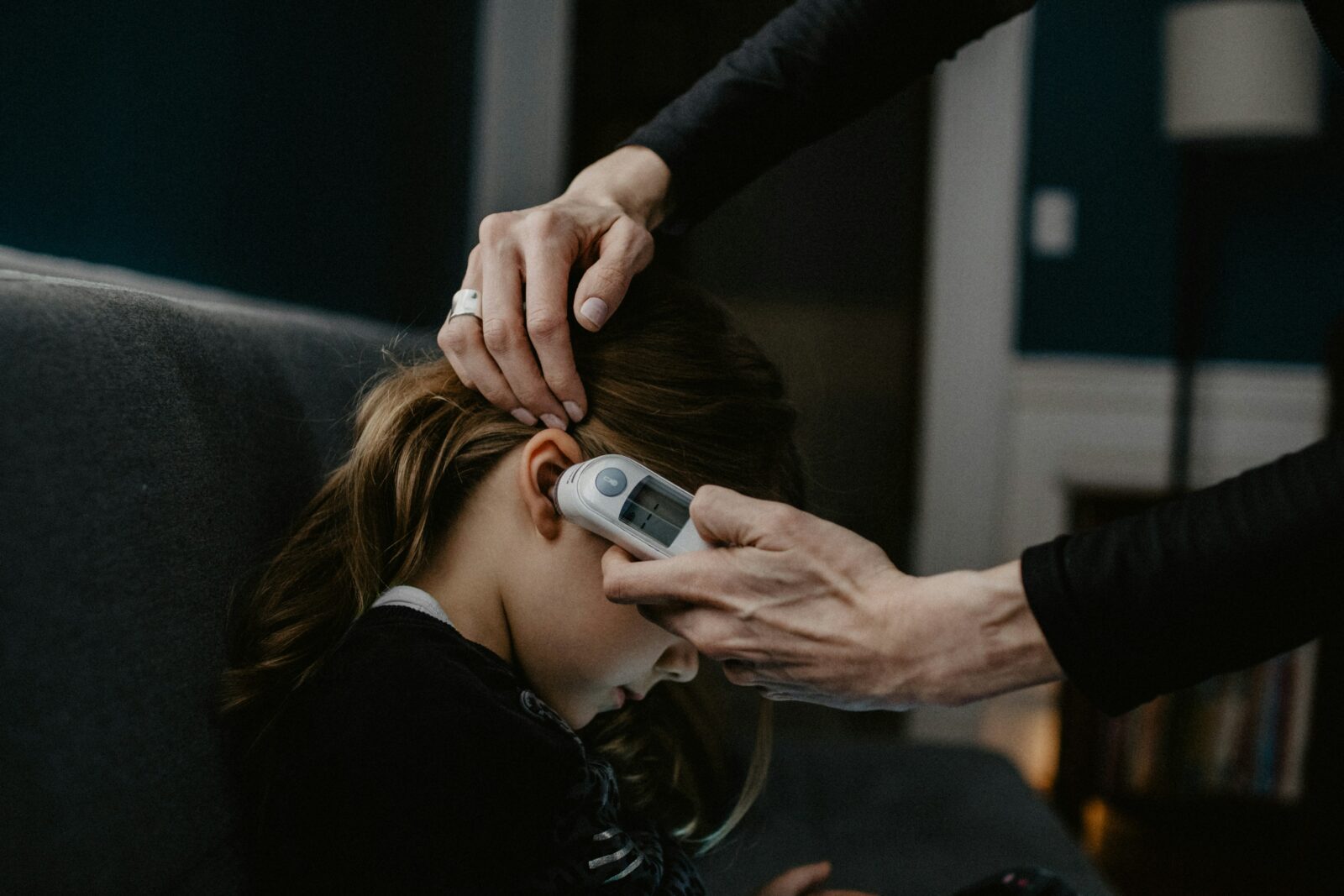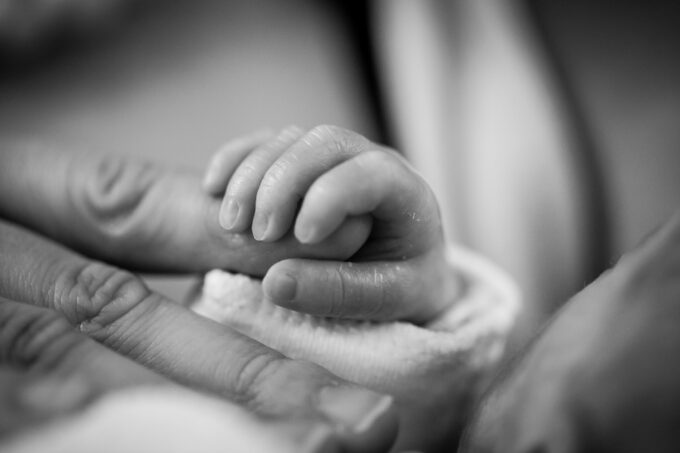As a parent, seeing your child with a fever can be a worrying experience. It can truly be a cause for concern and worry to witness your little one feeling warm, to the touch, and not quite themselves during times of illness or discomfort. However, the reality is that fever is often an indication that the body is actively working to combat an underlying sickness or infection that may be present. Although it might seem distressing for your child to endure, it is important to understand that a fever is a normal aspect of the body’s system response. This guide will walk you through what a fever is, when to be concerned, and how to help your child feel better.
What is a Fever?
When your child’s temperature goes up temporarily due, to an infection or illness is when a fever occurs. It is crucial to note that a fever is a sign of something going wrong in the body and not an ailment in itself; it is the body’s natural defense mechanism, against germs that are causing the infection.
Here’s how fevers are measured in children:
- Rectally (in the bottom): 100.4°F (38°C) or higher
- Orally (in the mouth): 99.5°F (37.5°C) or higher
- Under the arm: 99°F (37.2°C) or higher
The body’s temperature is controlled by a part of the brain called the hypothalamus, which acts like a thermostat. When your child’s body detects an invader like bacteria or a virus, the hypothalamus raises the temperature to help fight it off. In other words, a fever is one of the ways your child’s body defends itself and works to get better.
Common Causes of Fever in Children
Your child may experience a fever for several reasons. Some may be minor while others could require medical care and closer attention. Here are some of the most common reasons:
- Infections: Both viruses and bacteria can lead to fever. Common viral infections include colds, the flu, and chickenpox. Bacterial infections like strep throat or ear infections can also trigger fever.
- Teething: Sometimes, when babies are teething, they can run a mild fever, though it is usually nothing to worry about.
- After Vaccinations: It is normal for a child to have a low-grade fever after vaccinations. This is simply a sign that their immune system is responding to the vaccine.
- Overheating: Especially in infants, overheating from too much clothing or a hot environment can raise body temperature.
- Inflammatory Conditions: Although rare, fevers can sometimes be linked to more serious conditions like autoimmune diseases or inflammatory conditions such as Kawasaki disease.
What Else Happens When Your Child Has a Fever?
When a fever strikes, settle in, for a staycation as it often brings along some unwelcomed guests in the form of additional symptoms. These include:
- Irritability: They may seem fussier or more upset than usual.
- Fatigue: Children with a fever often sleep more and may not have their usual energy.
- Decreased Appetite: It is common for children to eat less when they are feeling unwell.
- Sweating and Chills: Fever often causes kids to sweat or shiver as their body tries to balance out its temperature.
- Body Aches: Older kids might complain of headaches or body pains.
- Dehydration: Fever can lead to fluid loss, so keeping your child hydrated is important.
When Should You Start to be Concerned About Having a Fever?
Fever is usually not a concern; however, it is important to know when to reach out to your doctor. Here are some guidelines:
- For newborns and babies that are less than one year old, it is important to have any fever examined by a doctor as even a mild fever could indicate a serious issue, at such a young age.
- Febrile seizures or “fits” can be triggered in some kids by fever. This should be discussed with your paediatrician, although they are usually short and not dangerous.
- If your child is not peeing often enough, has dry lips or appears excessively tired or sleepy they may be dehydrated and you should seek medical help promptly.
- If your child has a fever along with a rash or other symptoms, like vomiting or problems breathing, it is really important to seek medical attention immediately.
Ways to Soothe Your Child When They Have a Fever
While a fever typically goes away on its own, there are a few ways to make your child feel more comfortable:
- Comfort: Remember to keep your child comfortable by dressing them in light clothing and ensuring the room is at a comfortable temperature for your child. It is best to avoid piling on heavy blankets as they can make the fever even worse.
- Lots of Fluids: Make sure to provide liquids to your child when they have a fever to prevent dehydration; offer them water or milk and consider giving them an oral rehydration solution if needed. Oral rehydration salts, Pedialyte and coconut water are good ways to get fluids and electrolytes into your child. If you are breastfeeding your child, continue to do so.
- Fever Treatment: Medicines such, as acetaminophen (Tylenol and Panadol), ibuprofen (Advil, Motrin) or a combination of both (Ibugesic plus) can be used to reduce the fever and make your child feel better. Always remember to follow the dosage based on your child’s age and weight. Avoid giving aspirin as it may lead to a serious condition known as Reye’s syndrome.
- A Nice Bath: Consider giving your child a bath (not cold) to help reduce their fever without causing shivering or discomfort.
- Changes in behaviour: Keep an eye out for any changes in your child’s behaviour. If they are staying hydrated, active, and able to get some sleep then the fever itself is less concerning. However, if you notice that they are becoming more cranky or they appear more tired and lethargic than usual, then it is best to reach out to your doctor for advice and guidance.
Common Misconceptions Regarding Fever
There are myths surrounding fever that often lead to concerns and anxiety in parents. Let us take a closer look and debunk a few of these common held beliefs.
- MYTH 1 – ALL Fevers are dangerous: One common misconception is that fevers are always dangerous when, in fact most fevers are not harmful and are just the body’s way of fighting off infections. It is only in situations such, as high or prolonged fevers that complications may become a concern.
- MYTH 2- The higher the fever, the more dangerous the illness: This isn’t always true. A high fever does not necessarily mean your child is seriously ill. Some mild infections can cause high fevers, while more serious illnesses might result in only a slight fever.
- MYTH 3- All fevers need to be treated: Not all fevers need to be reduced immediately. As a matter of fact, allowing a mild fever to run its course can actually support the system’s effectiveness, in fighting off the illness.
Letting a Fever Run Its Course
Sometimes, it’s okay to let a fever do its job. Fever helps the body slow down the spread of germs, giving your child’s immune system a better chance to fight the infection. If your child is still relatively comfortable and drinking fluids, there’s no need to rush to treat the fever.
However, if the fever is making your child uncomfortable, preventing them from sleeping, or causing them to refuse fluids, you might choose to use fever reducing medication to help them feel better.
How Can You Prevent Fever Related Infections?
We cannot always avoid illnesses that result in a fever, there can be things that parents can do, in order to prevent them as much as possible:
- Vaccinations: Ensure that your child’s vaccinations are up to date. This can protect them from serious infections such as chickenpox and whooping cough.
- Hand-Washing: Encourage handwashing with soap and clean water before eating and after using the restroom to minimize the spread of germs.
- Eat Healthy: Make sure your kid eats a variety of foods including plenty of fruits and veggies to keep their systems strong and healthy.
- Avoid Sick Contacts: Try to keep your child away from people who are unwell to prevent them from catching infections.
Final Thoughts
Fevers, in kids are pretty common and definitely worrisome for parents at times! By understanding a fever’s purpose and knowing when to seek medical advice, you can feel more at ease managing your child’s health. Remember, a fever typically means your child’s body is working to fight off an infection. If you ever feel uneasy about your child’s fever do not hesitate to reach out to the paediatrician for advice. With the appropriate care and attention given to your child’s needs and well-being they will soon be back to their lively and playful self.












